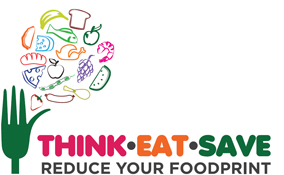|
According to a recent study, about a third of all food production world-wide gets lost or wasted in the food production and consumption systems, amounting to 1.3 billion tonnes. In industrialized nations, retailers and consumers discard around 300 million tonnes that is fit for consumption, around half of the total food squandered in these regions. This is more than the total net food production of Sub-Saharan Africa and would be sufficient to feed the estimated 900 million people hungry in the world. (FAO) |
|
What is food loss/waste all about? Technically speaking, food loss and waste refer to the decrease in mass (quantitative) or nutritional value (qualitative) of food – edible parts – throughout the supply chain that was intended for human consumption. Food that was originally meant for human consumption but for various reasons is removed from the human food chain is considered as food loss or waste, even if it is then directed to a non-food use (feed, bio-energy). • Food Loss refers to food that gets spilled, spoilt or otherwise lost, or incurs reduction of quality and value during its process in the food supply chain before it reaches its final product stage. Food loss typically takes place at production, post-harvest, processing and distribution stages in the food supply chain. • Food waste refers to food that completes the food supply chain up to a final product, of good quality and fit for consumption, but still doesn’t get consumed because it is discarded, whether or not after it is left to spoil. Food waste typically (but not exclusively) takes place at retail and consumption stages in the food supply chain. |

What is the Food Waste Campaign all about? The up side: with relative ease and a few simple changes to our habits, we can significantly shift this paradigm. Many regional campaigns have recently been launched, echoing to the challenge of food waste at the national level and in major sectors, including hotels, restaurants, supermarkets and households. Perhaps surprisingly, one-third of all unused food in developed countries is wasted by households. |
| The Think.Eat.Save campaign of the Save Food Initiative, is a partnership between UNEP, FAO and Messe Düsseldorf, and in support of the UN Secretary-General’s Zero Hunger Challenge, which seeks to add its authority and voice to these efforts in order to galvanize widespread global, regional and national actions, catalyze more sectors of society to be aware and to act, including through exchange of inspiring ideas and projects between those players already involved and new ones that are likely to come on board.
Genlife, a leading pharmaceutical company of India, supports UN’s zero hunger challenge and think, eat save program. Its time to take a step forward and make sure that everyone on Earth is well nourishment and good health. |

